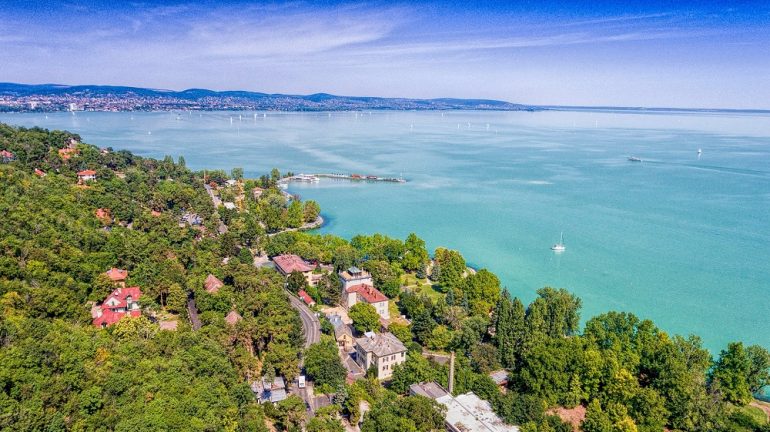By Andros Karagiannis *
What makes lakes attract as many visitors as the seas? A difficult question to answer by people who have never experienced the magic of wetlands, but it is very easy for lake lovers. The answer for them is reasonable and clear: Their natural beauty.
The protection of the lakes was addressed by the Committee on the Environment, Climate Change and Energy of the European Committee of the Regions at a meeting held in the town of Balatonfüret, located near Lake Balaton in Hungary.
The city has 13.500 inhabitants and is a well-known therapeutic resort due to its thermal waters. Lake Balaton is the largest lake in Central Europe with an area of 592 sq.km. The area around the lake is famous for its viticulture and the mild climate that resembles that of the Mediterranean, as confirmed by the delicious fruits, vegetables and cold cuts of the area.
The water of the lake is enriched with 51 streams and rivers and is rich in phosphorus. The water quality is excellent and the depth of the lake, which is part of the Natura 2000 program, reaches up to 3,5 m. The local authorities around the lake place great emphasis on the protection of wildlife, flora and fauna but and its ecological system in general. The cleanliness and the very good quality of the water is due to the presence of seaweed, the well-known in the area "blue seaweed", which makes the water of the lake suitable for watering, irrigation, swimming and fishing.
Clean lakes are synonymous with clean nature and the environment, with a good quality of life, food safety but also the promotion of sustainability and green economy. However, due to the stagnation of water, lakes can be polluted more easily than rivers. The most common form of lake contamination is plastic and chemicals. Of course, the local authorities alone are unable to protect the lakes and that is why they turn to the European Union for financial support.
Lake Balaton is bustling with life, especially in summer, and attracts around 3 million tourists a year. This is exactly what makes the local authorities try through collaborations to enrich their product, emphasizing the tradition, the culture, the local characteristics of the area, such as the healthy way of life but also the attraction of tourists of special character and interest. They aim to create an observatory, water sports, cruises, nature walks and bird watching. The same goes for countries that have salt flats, such as Cyprus, where lakes and their ecologically specialized areas should be protected.
The protection of lakes is a passion in many countries, because lakes are their natural wealth and give life not only to protected species but also to their territory. The examples heard in the Committee of the Regions from Hungary, Italy, Finland, Germany and Sweden about the efforts of local authorities to protect their natural wealth should be of concern to us as well as to us.
One such example is Lake Garda in northern Italy, which attracts 30 million tourists a year and brings significant economic benefits to the 52 local authorities that care for it. In Finland, on the other hand, fishing on frozen lakes attracts many tourists to the country, while in Germany the lakes are not jealous of anything but their seas.
From ancient times, whole cities were built, as today, next to the seas, lakes and rivers for the utilization of water and the possibilities - conditions that it creates. Along with cities and human societies, the human body needs the basic source of water to survive. That is why man should contribute to the protection of natural wealth, because there is no survival and life without water and especially without clean water.
* Andros Karagiannis, Mayor of Deryneia
